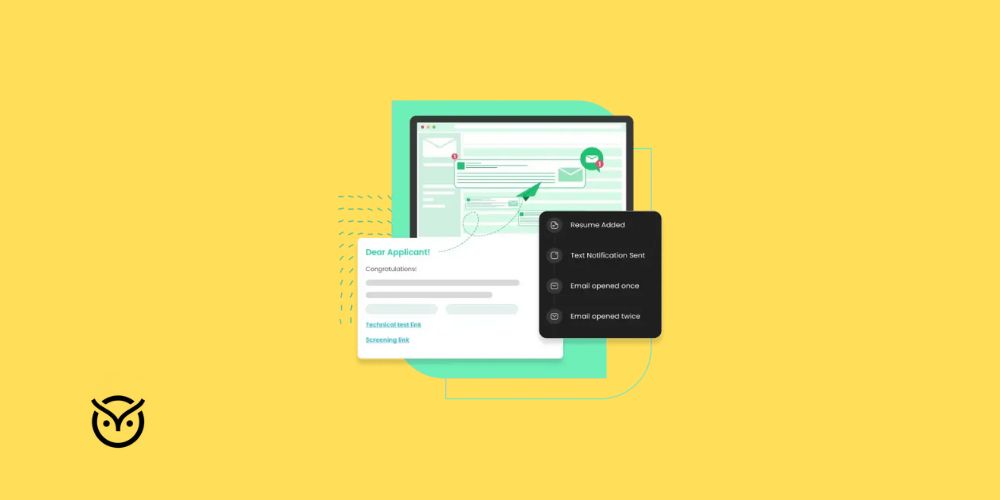
TL;DR
- Aim for 1 to 2 minutes per answer
- Use the STAR method for behavioral questions
- Keep intros to 30 to 90 seconds
- Watch the interviewer’s cues and wrap up if needed
- Practice aloud and time yourself to stay on track
- Start with a direct answer, then explain briefly
- Pause, check in, and ask if more detail is needed
Wondering how long interview answers should be to make the best impression? Striking the right balance between too brief and overly long responses is crucial during an interview. Answer too short, and you risk sounding unprepared; ramble on, and you might lose the interviewer’s attention.
The length of your answers can shape how confident, clear, and competent you come across, making answer length just as important as what you say. This blog will break down the essential interview answer length guidelines and share tips on pacing, so you can confidently deliver concise interview answers that leave a lasting impact.
Interview Timing Thermometer
Why Answer Length Matters in Interviews

You may not realize it, but how long you talk when you have the opportunity to talk, especially during an interview, says a lot about you. Here’s why the length of your answers really matters:
- Being concise and clear indicates to the interviewer that you are capable of organizing your thoughts and communicating with confidence, valuable skills for most jobs you'll pursue.
- If your responses are excessively lengthy, you are more likely to bore the interviewer or overload them with information. On the other hand, if your responses are too short, you run the risk of appearing unprepared or not thinking about the question appropriately.
- Interviews typically have a time constraint; being aware of how long you should talk facilitates allowing you time to provide the answer without rushing or leaving out important details.
- It also indicates to the interviewer that you are aware of the rhythm of the conversation and are respectful of their time. That type of self-awareness is always a positive impression to leave.
- Additionally, knowing how long to speak also helps to take the edge off your nerves and prevent you from rambling when anxious.
Rambling Radar Quiz
Check off any behaviors that apply to your past interviews:
General Guidelines for Interview Answer Length

When it comes to interview answers, there’s no one-size-fits-all rule, but having some general guidelines can really help you stay on track and sound your best. Here’s what to keep in mind:
- Be concise but thorough. Your goal is to answer the question fully but avoid going off on tangents or over-explaining. Think quality over quantity.
- Aim for about 1 to 2 minutes per answer. This is usually enough time to give a complete response without dragging it out. It gives you space to explain your point, provide examples, and wrap up smoothly. Career experts from Indeed echo this, recommending that interview answers stay within 1–2 minutes to keep the conversation focused and engaging without overwhelming the interviewer.
- Use the STAR method for behavioral questions. That means briefly describing the Situation, the Task you had, the Actions you took, and the Results. Following this structure helps keep your answer organized and focused, usually fitting nicely into that 1-2 minute sweet spot.
- Watch for interviewer cues. If they’re nodding and engaged, you’re probably on the right track. But if they start looking distracted or try to jump in, it’s a sign to wrap up your answer sooner.
- Practice makes perfect. Try timing yourself when you practice answers to common questions. It helps you get comfortable hitting that ideal response time without feeling rushed.
How to Structure Your Answers to Stay Within the Ideal Length

Giving interview answers that are the right length, detailed enough to impress but concise enough to keep interest, can be tricky. Here are five tips to help you strike that perfect balance:
Use the STAR Method for Behavioral Questions
The STAR method helps keep your answers clear and focused:
- Situation: Briefly set the scene.
- Task: Explain what you need to do.
- Action: Describe the steps you took.
- Result: Tell the outcome and what you learned.
This structure naturally fits into about 1–2 minutes, making your answers both complete and concise.
Tailor Your Answer Length to the Question
Not all questions require the same depth:
- For introductory questions (like “Tell me about yourself”), keep your answer around 30–90 seconds.
- For behavioral or situational questions, aim for 1–2 minutes using STAR or a similar format.
- For technical or factual questions, be concise but thorough, generally under a minute unless a deeper explanation is requested.
Start with a Direct Answer
State your answer directly at the beginning of your reply. This will provide a better framework for the answer and will keep you from rambling. Once you give a straight answer, you can then provide supporting information or examples to support it.
Practice Active Listening and Watch for Cues
Watch the body language and verbal cues of the interviewer. Do they seem to want to move on? Are they interrupting? If so, it’s a sign to wrap it up quickly. It shows you respect their time and are flexible.
Time Yourself
Before your interview, pretend to rehearse your answers out loud and time yourself. This kind of practice develops a natural rhythm when you talk, and it helps make sure that you are not rambling unintentionally or awkwardly giving too short of an answer. It can be helpful to record your practice or rehearse with a friend.
Build-A-STAR Answer
Drag and drop the STAR components into the correct order:
Tips for Managing Your Answer Length During an Interview

In an interview, keeping your answers the right length can be tricky. You have to provide enough detail to demonstrate your skills and experience, but follow-up interviews are not a time for overly elaborated or off-topic responses, and you must not risk the appointment by losing the interviewer's attention. Here are some tips to help you manage your answer length smoothly:
Be Mindful of Time
Aim to keep most answers between 1 to 2 minutes. If you notice you’re talking longer, gently steer yourself back on track by summarizing your point and wrapping up.
Pause and Check In
It’s okay to pause briefly after you finish a point or example. This gives the interviewer a chance to jump in with questions or move on. It also helps you gauge if you’re giving the right amount of detail.
Use Mental Bullet Points
Before answering, quickly outline 2 or 3 key points you want to cover. This keeps your answer organized and prevents you from adding unnecessary information.
Practice Brevity Without Rushing
Speak clearly and at a moderate pace. You don’t want to rush through your answers, but practicing concise responses beforehand will help you express yourself efficiently.
Ask for Feedback if Unsure
When you are uncertain if your answers are too long or too short, it is perfectly acceptable to ask, “Would you like me to elaborate more on that?” This shows you are conscious and considerate.
Conclusion
So, how long should interview answers be? Well, the exact length is not important. This isn’t about an exact time, but finding a middle ground of sharing enough detail to show your abilities and experiences, but short enough to keep your answer concise and engaging. If your answers are structured sensibly and you are controlling your pace, you will appear confident and succinct, and this will positively influence your interviewer.




